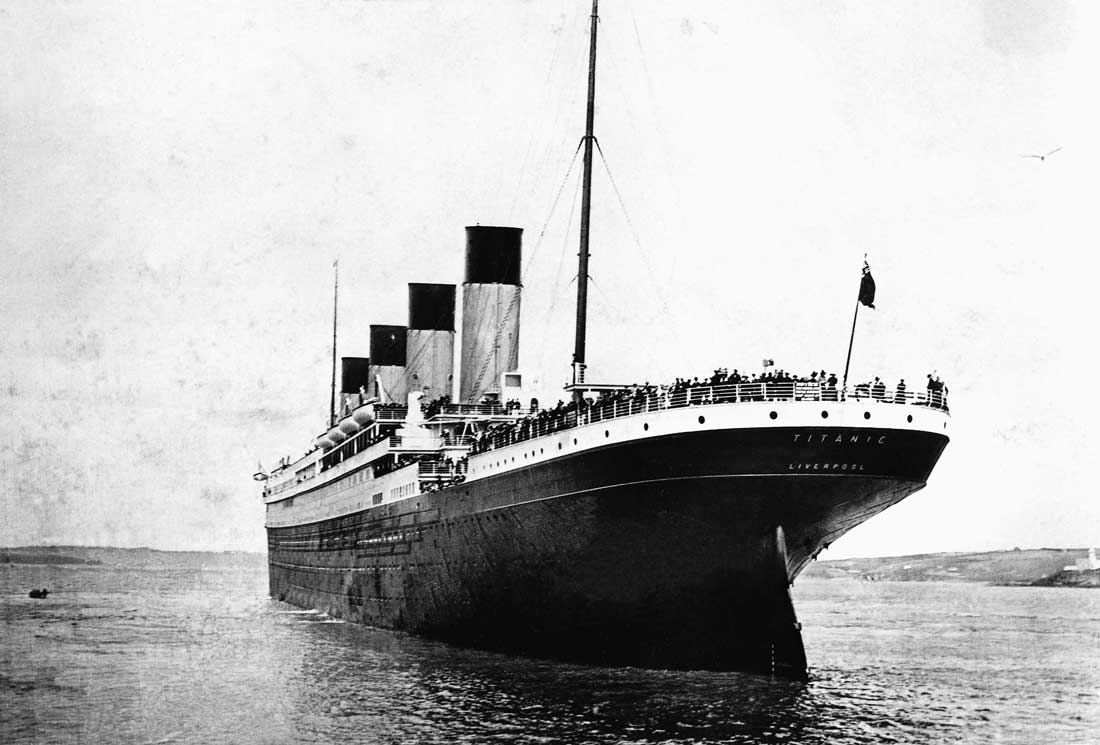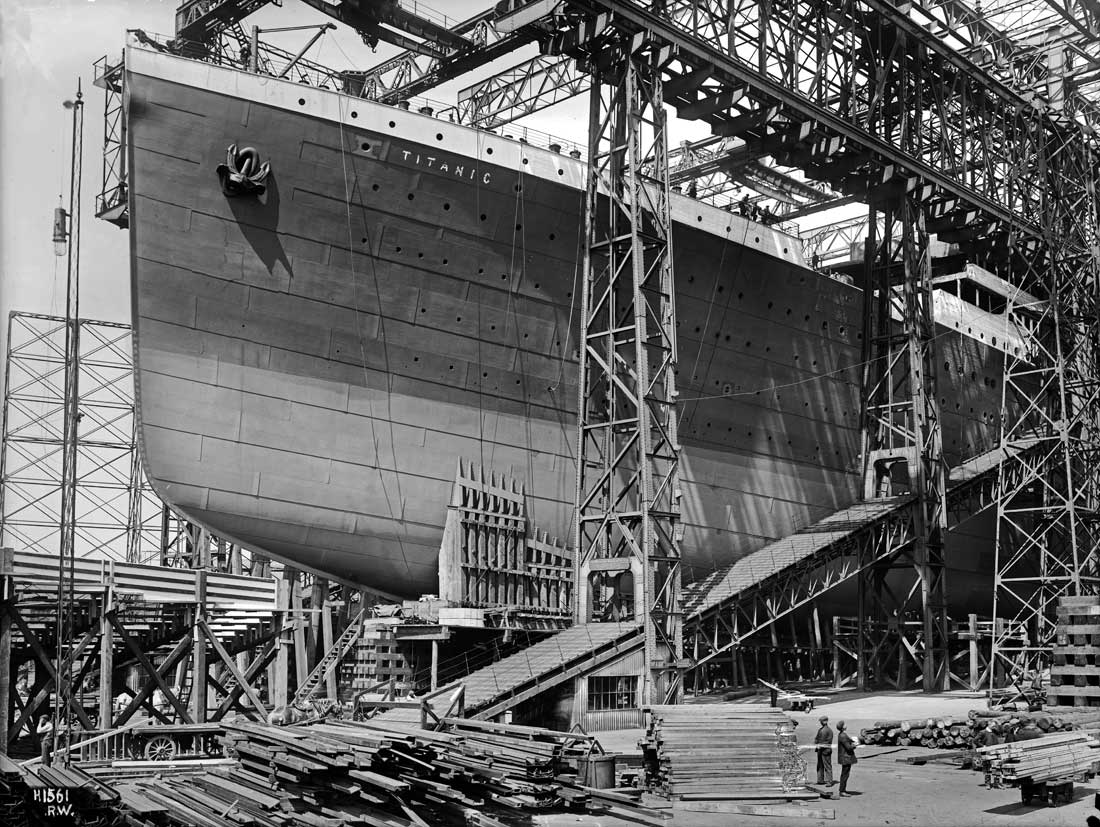Titanic
Owner: Oceanic Steam Navigation Co. Ltd. (White Star Line)
Ship Details
Details
Vessel Type: Passenger ship
Official No: 131428
Builder: Harland & Wolff Ltd, Queen's Island, Belfast
Yard No: 401
Laid down: 31 March 1909
Launched: 31 May 1911
Handed over: 2 April 1912
Port & Date of Registry: Liverpool, 25 March 1912
Managing Owner & Address: Harold Arthur Sanderson, 30 James Street, Liverpool
Description
Number of Decks: 5 & 2 Partial
Number of Masts: 2
Rigged: Schooner
Stern: Elliptical
Build: Clencher
Framework & Description of Vessel: Steel
Number of Bulkheads: 15
Number of water ballast tanks: 17
Dimensions
Length: 852.5 ft
Breadth: 92.5 ft
Depth: 64.9.1 ft
Gross Registered Tonnage: 46,328.57
Machinery
Engine Builder: Harland & Wolff Ltd, Belfast
Engine Type: 2 X triple expansion inverted vertical direct acting surface condensing, 1 X low pressure turbine
Cylinders: 2 X 54; 2 X 84; 4 X 97 inches
Stroke: 75 inches
Nominal Horse Power: 6,906
Boilers
Description: Cylindrical multi-tubular
Number: 24 double & 5 single ended
Iron or Steel: Steel
Pressure when loaded: 215 lbs
Screw: Triple
Speed: 21 knots
Signal Letters: H. V. M. P.
Notes
Second of the 'Olympic' class, Yard No. 401 incorporated a number of design improvements and changes in the layout of the passenger accommodation following almost ten months operation of her older sister Olympic (Yard No. 400).
The main difference between the two ships, externally, was the glassing in of the forward end of the Promenade Deck; in operation it was found that spray was landing on Olympic’s deck making it slippery for 1st Class passengers.
Despite White Star’s concerns about the comfort of 1st and 2nd Class passengers this was not the primary reason for Titanic's construction. Her proper title is the 'Emigrant Ship Titanic' and without the record numbers of emigrants crossing the Atlantic ships like this would never have been constructed.
Time for the ‘Olympic’ class was running out long before an iceberg was sighted in Titanic’s path. The war clouds gathering across the Continent and, immediately after the Great War, restrictions on the numbers allowed to enter the United States, signalled the end of the giant emigrant ship era.
Titanic stands not only as one of the worst disasters at sea but also as a memorial to the zenith of mass migration across the world's oceans.



